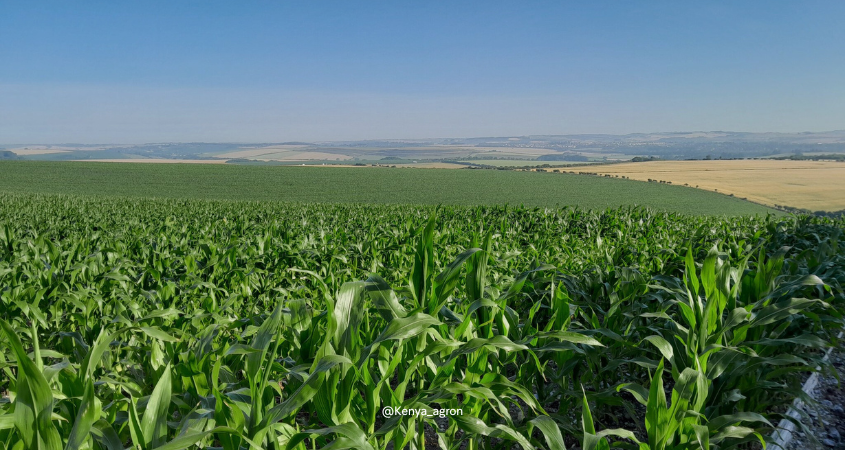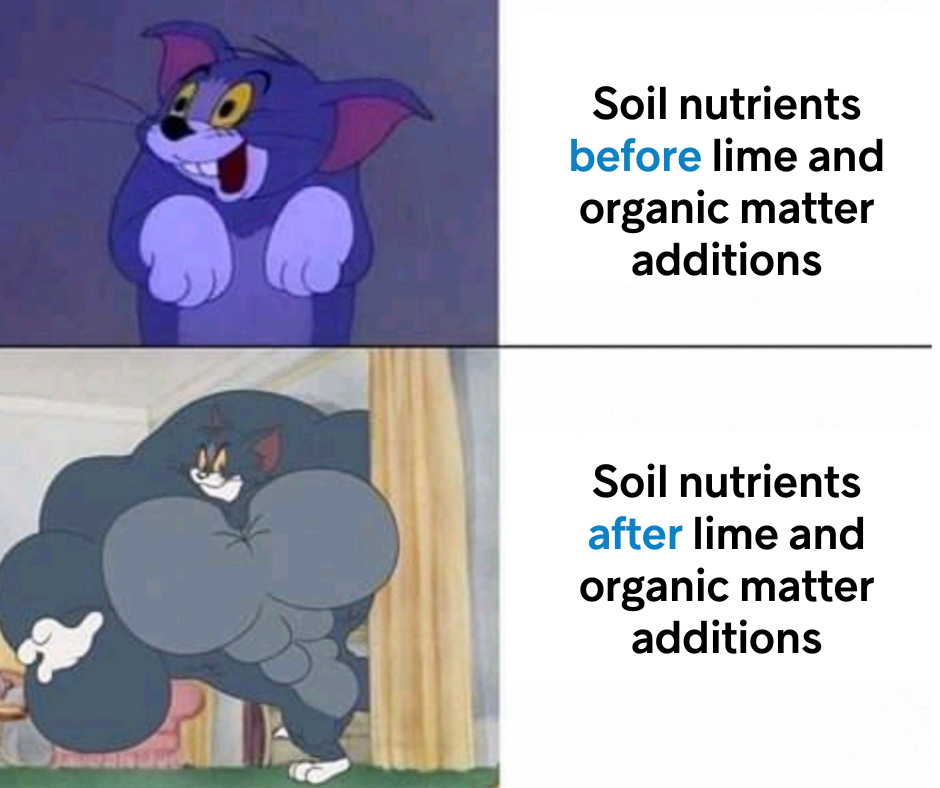
Soil health is the foundation of productive agriculture, and the strategic addition of lime and organic matter can significantly improve soil fertility and structure. Let’s explore how these two critical amendments work together to enhance soil health and support sustainable farming practices.
Lime is commonly used to correct soil acidity, particularly in regions with naturally acidic soils. As soil pH levels approach neutrality (around 6.5 to 7.5), the availability of essential nutrients like phosphorus, potassium, and magnesium significantly improves, promoting healthier plant growth. Calcitic lime, dolomitic lime and gypsum also release additional calcium, magnesium and sulfur nutrients in the soil.
Organic matter enhances soil aggregation, which improves its ability to retain water and nutrients. As organic matter decomposes, it slowly releases nutrients like nitrogen, phosphorus, and sulfur, providing a steady and sustainable nutrient supply. Additionally, organic matter supports a thriving microbial community, which plays a crucial role in nutrient cycling and further boosts soil fertility and plant health.

When lime and organic matter are used together, their benefits are amplified. Lime adjusts the pH, enhancing nutrient availability, while organic matter continuously supplies nutrients and improves the soil’s physical properties. Together, they create a more favorable soil environment that supports nutrient availability, robust root systems, and healthy plant development.
Integrating these amendments into regular soil management practices promotes sustainable agriculture. Healthy, balanced soils retain more water, can withstand weather extremes, and have greater resilience to climate variability. Enhanced nutrient availability also boosts plant health and can reduce excessive reliance on chemical fertilizers, lowering input costs and maximizing yields.
Soil testing is essential for effectively incorporating lime and organic matter to improve soil health. It helps determine soil pH levels, evaluate organic matter content, assess nutrient levels, and recommend the appropriate type and application rates for lime and organic amendments. This targeted approach enhances crop health and yields while reducing input costs.
In conclusion, the combined application of lime and organic matter creates a more balanced, nutrient-rich, and resilient soil environment. Regular soil testing helps determine soil pH levels, nutrient levels, and organic matter content, allowing for targeted soil input applications. For further assistance in integrating these sustainable practices into your farming routine, feel free to contact our soil health experts at support@cropnuts.com.
Grow more with less
#savesoil #soilhealth #soilscience
Order our services and get to know how to improve your soil for better yeilds.